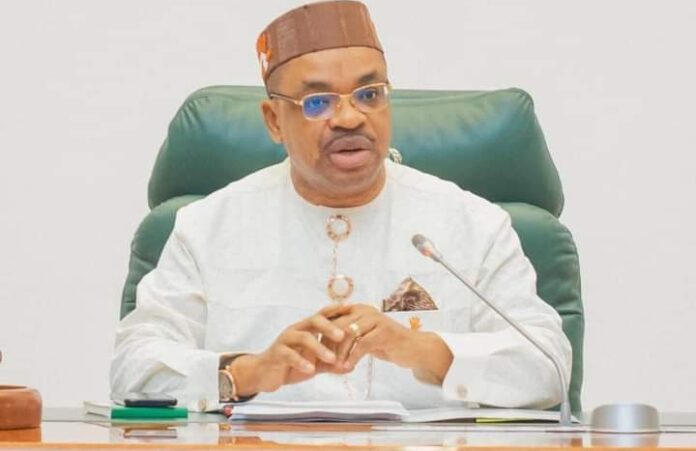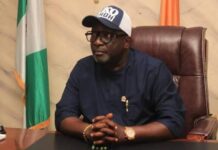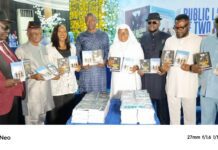Mr. Udom Emmanuel, Governor, Akwa Ibom State. (Credit : Facebook – Min. Of Information and Strategy)
By Abasifreke Effiong
Policy Alert, an NGO working to promote economic and ecological justice in the Niger Delta, has raised questions over a N136.5 billion supplementary budget proposed by Governor Udom Emmanuel.
The organisation has called on the Akwa Ibom State Budget office and the State House of Assembly to publish details of the supplementary budget proposals online to enhance citizens engagement and instill confidence in fiscal decision- making of the state government.
The Akwa Ibom State Executive Council on 10th September approved a N136, 504,539,000 supplementary budget.
The Commissioner for Information and Strategy, Mr. Ini Ememobong in a post EXCO report said the supplementary budget consist of N97,202,539,000 for capital expenditure and N39,302,000,000 for recurrent expenditure.
Mr. Ememobong hinted that the Commissioner for Finance, Mr. Linus Nkan who presented the estimates to EXCO said they were based on ‘inflation, exchange rate and other financial accidentals.’
He said Mr. Nkan noted that ‘natural disasters had occurred in the past few months, were not captured in the budget, but require urgent government intervention.’
READ : Oruk Anam council violates Akwa Ibom Local Govt Admin Law in appointment of new Vice Chairman
The supplementary budget when passed by the House of Assembly will put the State’s revised budget for 2021 at N592.8 billion.
Policy Alert in a statement by its Programme Officer, Fiscal Reforms and Anti-Corruption, Mr. Faith Paulinus, said it is concerned that the State Government has proceeded with a supplementary budget despite volatile oil prices and the COVID-19 pandemic.
The organisation said further spending by the government should be informed be based on revenue and capital expenditure performance.
“We are of the opinion that any further spending approvals for government should be informed by revenue and capital expenditure performance in previous quarters and should be carefully designed to address priority projects that meet the needs of the poorest citizens.”
The organisation noted that in the last six quarters, priority sectors for citizens such as education, health, agriculture, and water, sanitation and hygiene (WASH) have not received priority attention.
READ ALSO : NGO suggests ways to check migration of medical personnel from Nigeria
“In 2020, only agriculture out of these sectors saw substantial capital budget performance, with 46.5 percent implementation compared to 28 percent in 2019. Budget performance for education stood at 26.2 percent while health had 27.8 percent performance.”
“The WASH sector had zero release despite having a paltry budget of N228 million.”
Policy Alert urged the State House of Assembly to “resist the temptation of being rushed to accept the supplementary proposals hook, line and sinker.”
“Lawmakers should prioritize the overriding public interest over partisan loyalties. They should carefully examine the provisions line by line against extant fiscal data to ensure they meet the needs and priorities of the citizenry.”
















